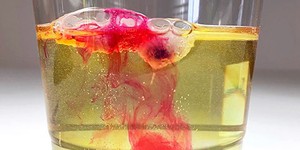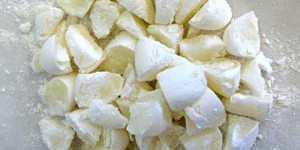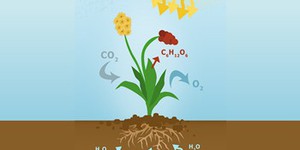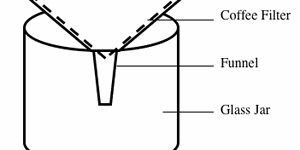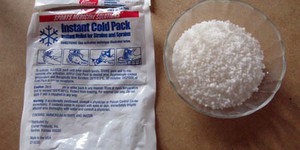Others Like “Big Pieces or Small Pieces: Which React Faster?” (top 20 results)
|
Did you know that your body needs a certain amount of iron in order to stay healthy? Iron can be found in much of what you consume each day. Almond flour—frequently used in cookies—is just one example of an iron-rich food. However, only a small fraction of the iron in food gets absorbed by the body, partially because the body can only absorb dissolved iron. In this project, you will study whether the acidic environment in your stomach helps dissolve iron. You will use a color-based…
Read more
A lot of medication comes in the form of pills that you need to swallow. But not all pills are the same! Some look like little capsules, others are made of pressed powder. Why are there different types of pills? Different types of pills release their active ingredients in different ways. Some release their active ingredient right after initial administration. Others release their active ingredient much later. Such drugs are called delayed-release drugs. These kinds of pills have to be…
Read more
You have probably seen it on You Tube™ — the exploding Coke® and Mentos®
experiment. But what is it that makes the reaction happen, and what factors cause a larger or smaller
eruption? In this science project, you will see if using crushed
Mentos candies, instead of whole Mentos candies, will affect the reaction.
Read more
Most of the ultraviolet (UV) light produced by the Sun is blocked by the atmosphere, but some UV light does still reach Earth. It can be detected using electronic devices, but can also be detected with something called UV beads. UV beads contain a pigment that changes color when they are exposed to ultraviolet radiation from the Sun. In this chemistry science fair project, you will use UV beads to study how temperature affects the rate at which they lose their color.
Read more
Every criminal leaves behind evidence at the crime scene. The trick to catching the criminal is collecting all of the evidence and making sense of it. This is what the forensic expert does. In this science project you will be correlating the size of blood stains to the distance they fell, but do not get too grossed out. You will be doing it with fake blood. If you like figuring out mysteries, this is the science project for you!
Read more
Have you ever seen a (non-carnivorous) plant eat? Probably not! Plants do not get the energy they need from food, but from the sunlight! In a process called photosynthesis, plants convert light energy, water, and carbon dioxide into oxygen and sugar. They can then use the sugar as an energy source to fuel their growth. Scientists have found an easy way to measure the rate of photosynthesis in plants. The procedure is called the floating leaf disk assay. In this plant biology project, you can…
Read more
Has the temperature in your house felt hotter or colder recently? This could be due to the greenhouse effect. The greenhouse effect states that gases in the atmosphere, such as CO2, might increase the surface temperature of Earth. In this science fair project, you will build a small model of Earth and use it to see how the temperature varies, compared to outside of the model. If you select this science fair project, you will be a part of the effort that is working to figure out what role…
Read more
Have you ever mixed together salt and sand? It is fun to see how all of those tiny grains of salt and sand mix together! But what if you had to separate them out again? Do you have nightmares of tiny tweezers, a magnifying glass, and hours spent picking grains of salt and sand apart? Do not be afraid, there is another way! In this chemistry science project you will use the differences in solubility between salt and sand to find out the simple "solution" to this problem.
Read more
Instant cold packs are popular with coaches and parents for treating minor bumps and bruises. The instant cold packs are not pre-cooled—you just squeeze the cold pack and its starts to get cold. So how does it work? In this chemistry science fair project, you will investigate the chemical reaction that occurs in instant cold packs.
Read more
The oceans are a precious natural resource, part of Earth's carbon cycle. But what happens if the oceans absorb too much carbon dioxide? Many scientists are concerned that the increased absorption of carbon dioxide is causing them to become more acidic. What impact does that have on the marine life? In this ocean science fair project, you will demonstrate ocean acidification and investigate the effect on the shells of marine life.
Read more
|
Explore Our Science Videos
Make a Balloon Car
Explore How we Breathe
Paper Speaker Troubleshooting




